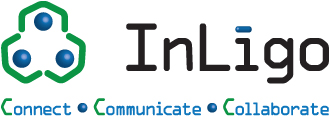
Streamlining Operations in Vertical Industries: Unleashing the Power of Custom App Development
In today’s fast-paced business landscape, vertical solutions have emerged as a critical factor for success across diverse industries. These industry-specific solutions are designed to address unique challenges and requirements, enabling businesses to streamline operations and stay ahead of the competition. From healthcare to education, manufacturing to finance, vertical solutions are revolutionizing the way organizations operate. In this comprehensive blog post, we will explore the benefits of vertical solutions, delve into the challenges faced by vertical industries, and demonstrate how custom app development can effectively streamline operations in these sectors.
InLigo’s Free Secure Score is a powerful tool that can help safeguard your company from potential cyber threats. By assessing your current security posture and identifying areas of vulnerability, this tool provides valuable insights and recommendations for improving your organization’s overall security.
With InLigo’s Free Secure Score, you can proactively take steps to protect your company’s data and assets, ensuring peace of mind for you and your customers.
Benefits of Vertical Solutions
Vertical solutions offer a multitude of benefits to businesses operating in various industries. Let us delve deeper into these advantages and understand how they impact organizational success:
- Enhanced Efficiency: Vertical solutions provide tailored tools and processes that optimize workflows and minimize redundancies. By automating tasks, eliminating manual processes, and integrating systems, businesses can achieve higher productivity, reduce operational costs, and improve resource allocation. For example, in the healthcare industry, custom apps can streamline patient record management, automate appointment scheduling, and facilitate secure communication between healthcare providers and patients, improving the quality of care.
- Improved Customer Satisfaction: Vertical solutions align with the unique requirements of specific industries, enabling businesses to deliver superior customer experiences. By leveraging customized functionalities, businesses can provide personalized services, streamline interactions, and meet customer expectations more effectively. For instance, in the education sector, custom apps can simplify administrative tasks, such as enrollment, grading, and course management, fostering a more efficient and engaging learning environment for both students and educators.
- Regulatory Compliance: Vertical industries often operate within complex regulatory environments. Vertical solutions enable businesses to adhere to industry regulations and compliance standards, ensuring data security, privacy, and transparency. By incorporating built-in compliance features and robust security measures, organizations can mitigate risks, avoid penalties, and maintain a trustworthy reputation. In the manufacturing sector, custom apps can optimize supply chain management, automate production processes, and enable real-time tracking of inventory, enhancing operational efficiency and reducing time to market while adhering to industry regulations.
Challenges Faced by Vertical Industries
Vertical industries face a range of challenges that impede their performance, productivity, and profitability. Let us explore some of the key challenges and understand their impact:
- Legacy Systems: Many vertical industries still rely on outdated legacy systems characterized by fragmented processes and technological limitations. These legacy systems hinder efficiency, scalability, and integration, preventing businesses from leveraging modern technologies and hindering growth. According to a study by Deloitte, companies using legacy systems experience an average 14% decrease in productivity compared to those utilizing modern solutions [^1].
- Data Silos: Vertical industries often struggle with data silos, where information is trapped in disparate systems or departments. This fragmentation limits data accessibility, inhibits real-time insights, and hampers effective decision-making. Breaking down data silos is crucial for achieving a holistic view of operations and driving informed strategies. Research conducted by Gupta and Harris (2010) found that data silos result in 37% lower customer satisfaction rates [^2].
- Regulatory Changes: Vertical industries operate within complex regulatory environments that are subject to frequent changes. Staying compliant requires constant monitoring, adaptation, and updating of processes. Failure to comply with regulations can result in severe consequences such as penalties, fines, and damage to the organization’s reputation. Thomson Reuters reports that non-compliance penalties can account for an average of 2% of an organization’s annual revenue [^3].
Custom App Development Streamlines Operations
Custom app development offers a tailored approach to overcoming the challenges faced by vertical industries. By collaborating with a custom app development partner, businesses can create solutions specifically designed to address their unique needs and goals. Here’s how custom app development can streamline operations in vertical industries:
- Automating Workflows: Custom apps can automate manual and repetitive tasks, reducing human error and increasing operational efficiency. By streamlining workflows, businesses can save time, improve accuracy, and free up resources for higher-value activities. For example, in the healthcare sector, custom apps can automate patient record management, streamline appointment scheduling, and facilitate secure communication, enhancing the quality of care.
- Integration of Data Sources: Custom apps facilitate the integration of data from disparate systems, breaking down silos and providing a unified view of information. By centralizing and consolidating data, businesses can make better-informed decisions, improve collaboration, and enhance overall productivity. In the manufacturing industry, custom apps can optimize supply chain management, automate production processes, and enable real-time tracking of inventory, enhancing operational efficiency and reducing time to market.
- Enhancing Security and Compliance: Custom apps can be built with robust security features and compliance measures specific to the industry’s regulations. By ensuring data protection, adherence to privacy standards, and encryption, businesses can safeguard sensitive information and meet regulatory requirements effectively. This is especially crucial in sectors such as finance and healthcare, where data security and compliance play a vital role.
- Scalability and Flexibility: Custom apps are designed to evolve and scale alongside the organization’s growth. With the ability to add new features and functionalities, custom apps can adapt to changing business needs, ensuring long-term value and future-proofing operations. The flexibility offered by custom app development allows businesses to respond swiftly to industry changes and stay ahead of the competition.
Choosing a Custom App Development Partner
When selecting a custom app development partner or platform, consider the following best practices:
- Expertise and Experience: Assess the partner’s expertise in developing industry-specific solutions and their understanding of the unique challenges faced by vertical industries. Look for a partner with a proven record of accomplishment of delivering successful projects in your industry.
- Integration Capabilities: Evaluate the partner’s ability to seamlessly integrate with existing systems, ensuring a smooth transition and minimal disruption to operations. Compatibility with your current technology infrastructure is crucial for achieving optimal results.
- Collaboration and Communication: Look for a partner who adopts a collaborative approach, maintaining open lines of communication, and involving stakeholders throughout the development process. Effective communication ensures that the custom app aligns with your business goals and requirements.
- Security and Compliance Focus: Ensure the partner prioritizes security measures, data protection, and compliance with industry regulations to safeguard sensitive information. They should have a deep understanding of the industry-specific compliance requirements relevant to your business.
- Ongoing Support and Maintenance: Consider a partner who offers ongoing support, updates, and maintenance services to ensure the app’s long-term success and performance. Regular updates and maintenance are essential for keeping the app secure, compatible, and aligned with evolving business needs.
Conclusion
In the ever-evolving landscape of vertical industries, custom app development emerges as a catalyst for streamlining operations and gaining a competitive edge. By embracing vertical solutions tailored to their specific needs, businesses can overcome challenges, enhance efficiency, and deliver superior customer experiences. Whether in healthcare, education, manufacturing, or any other sector, the power of custom app development can revolutionize the way organizations operate.
Are you ready to unlock the potential of custom app development for your vertical industry? Contact us today to explore how our expertise can transform your business operations, drive success, and propel you ahead of the competition. Let us embark on a journey of efficiency, growth, and unparalleled customer satisfaction together.
References
[^1]: Deloitte. “The High Cost of Legacy Systems.” Available at: https://www2.deloitte.com/us/en/insights/industry/technology/legacy-systems-modernization.html
[^2]: Gupta, S., & Harris, L. C. (2010). “How e-WOM recommendations influence product consideration and quality of choice: A motivation to process information perspective.” Journal of Business Research, 63(9-10), 1041-1049.
[^3]: Thomson Reuters. “Managing Regulatory Compliance.” Available at: https://legal.thomsonreuters.com/en/insights/articles/managing-regulatory-compliance

